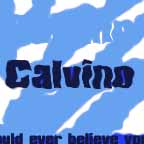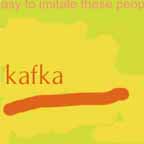
The expansion of global communications in the last two decades calls into question issues of space, time, technology, meaning and identity (collective and individual) which draw on, yet expand, the work of some of the classic writers on communication and cultural interfaces (e.g. Nietzsche, Simmel, Benjamin, Innis, Bakhtin, Schutz, Husserl, Heidegger, Habermas, Eric Wolf, Debord, de Leuze and Guattari). This is perhaps the time to try to establish which of these help us to create an interpretive basis for understanding the present condition. The proposal is not to take the theorists genealogically (as if that were possible), nor to place other theorists in juxtaposition to a central figure, but rather to situate the theories in relation to certain ongoing processes. For this purpose, commencing with the work of Benjamin, I want to explore the communicative culture of several cities, located specifically because of their different communicative positions within a sense of a global zone of engagement. The cities would certainly include Paris, Berlin, London, Amsterdam, Toronto, Montreal, Dublin, Barcelona, Milan and Accra, but beyond that I cannot see. There will be a small number of guest speakers to the course.
A Reading list will be provided nearer the time, but all students should read Baudelaire's Poetry, St Augustine's City of God, Italo Calvino's Imaginary Cities, Kafka's The Castle, and John Berger's Trilogy Into Their Labours, Joyce's Ulysses, and Armah's The Beautiful Ones are Not Born in order to become sensitive to the problems of communicating the image of the city. 

| Second term outline
Following the discussions we have all had, and using my judgement on what we can handle, here is my list for the Winter term of the course.
Here are the rationales and authors for clusters which help us to think about communication, memory and the city. (Texts are below). For the time being I have decided not to pursue Benjamin much further, except briefly in conjunction with Derrida and Celan.
However, first, an Introduction in which we will discuss arguably the most important post-modern novel on cities by Italo Calvino. brief excerpt of Invisible Cities (One session: Jan 7)
The First Cluster will consist of a discussion round the work of Bakhtin, where we think primarily of Bakhtin's notion of the carnivalesque and the dialogic as an occasion for thinking about narrative, alterity, mimesis, resistance. There will also be a consideration of how literary text is employed as an occasion for theorizing about the social, the cultural and the linguistic. (3 Sessions: 14, 21, 28 Jan)
connect to the Bahktin Centre, University of Sheffield,
[This is the database of works by Bakhtin and other members of the Bakhtin Circle (Kagan, Medvedev, Pumpianskii, Sollertinskii,
Voloshinov). It contains a total of 638 entries.
Works about Bakhtin and the Bakhtin Circle are indexed separately in the secondary database]
The Second Cluster involves considering the contrasting notions of the spectacle, which will be found in the writing of Guy Debord, and that of the panopticon, elaborated in the writing of Michel Foucault and his descendents. Here we trace the Lukacsian development of the notions of commodity fetishism, reification, etc, and their physical manifestations and contrast them with the neo-Nietzschean critique of post-Enlightenment rationality in the text as architectural power. (Two sessions: 4, 11 Feb)
links to Guy Debord and the Situationists
In the Third Cluster we will confront history, memory, artefact as traces, ghosts, echoes by examining Derrida's Specters of Marx, Paul Celan's poetry, Benjamin's "Theses on the Philosophy of History" [brief excerpt here] and Michael Taussig's Mimesis and Alterity. (Three Sessions: 11, 18 Feb, 4 March)
Paul Celan page (includes his poetry -- German with English translations)
In the Fourth Cluster some of the engagements with the photograph will be laid out, in particular as they appear in the writings of Susan Sontag, John Berger, Roland Barthes, Victor Burgin. (One scintillating session: 11 March)
There will be no Fifth Cluster as such. Rather for the remaining two sessions we will reserve time to reconsider Toronto and the city/communication spaces in the light of our sins of omission and commission (18, 25 March).
Books & other texts: (Commentaries, etc, will be suggested as we go along)
Italo Calvino: Invisible Cities
Bakhtin: Rabelais
Bakhtin: The Dialogic Imagination
Rabelais: Gargantua and Pantagruel
Bahktin Centre, University of Sheffield,
Guy Debord: The Society of the Spectacle(online)
Guy Debord: Comments on Society of the Spectacle
(of interest? Guy Debord Page)
Michel Foucault: Discipline and Punish
Michel Foucault: The Archaeology of Knowledge
Jacques Derrida: Specters of Marx
Michael Taussig: Mimesis and Alterity
Walter Benjamin: "Thesis on the Philosophy of History," in Illuminations
Paul Celan: Breathturn
John Berger: Another Way of Telling
Berger links http://www.accinet.net/~fjzwick/cb/berger.html
Susan Sontag: On Photography
read Philip Greenspun's rather scathing review of On Photography [for photo.net] here
Victor Burgin: Some Cities
thoughts on Victor Burgin's photo-text sequence The Bridge (1984) [Paul Smith]
Roland Barthes: Camera Lucida
click here to see "What has Been" an on-line photgraphy exhibit inspired by Camera Lucida.
NB: Remember that the classes for this course will end on March 25 .
|